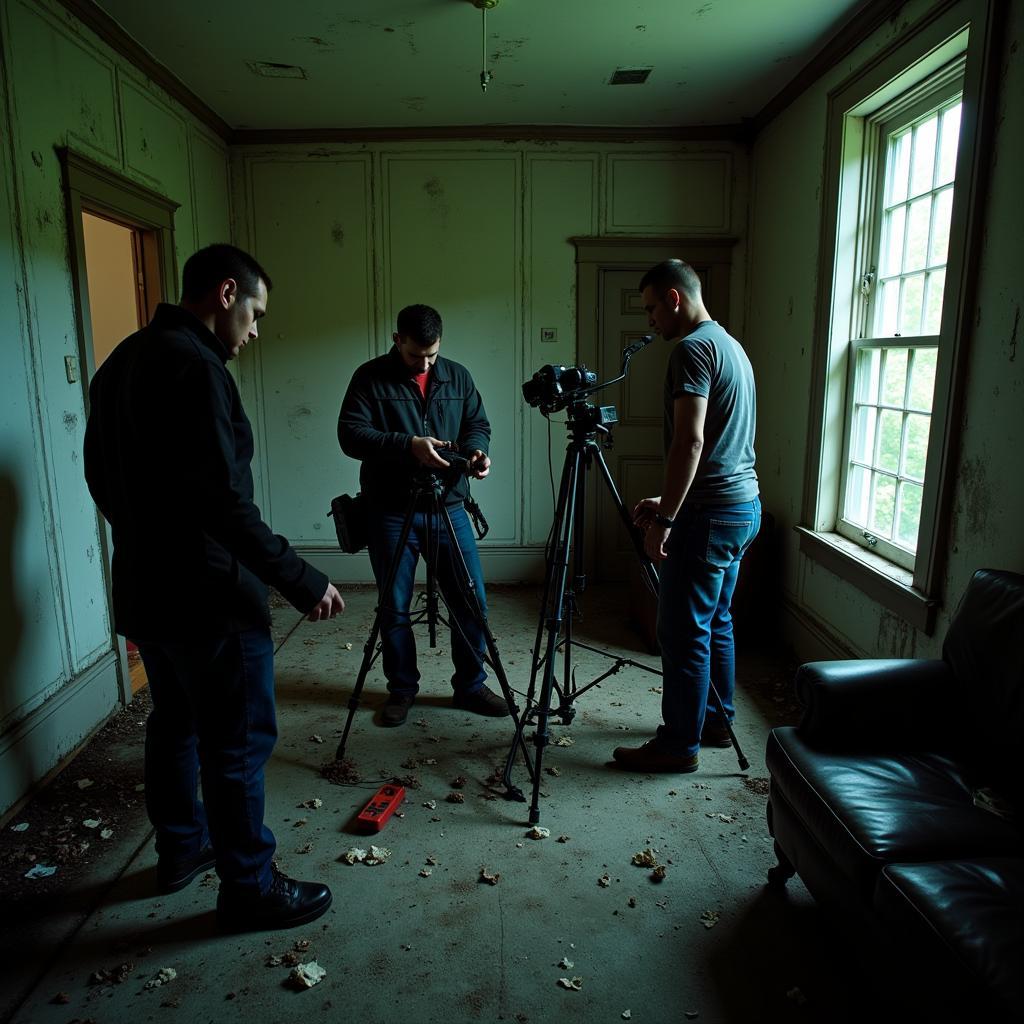Informal Research Methods offer a fascinating glimpse into the world of information gathering, particularly within the realm of paranormal investigations. These methods, distinct from the structured rigor of formal research, provide a flexible and adaptable approach to exploring unexplained phenomena. They allow researchers to delve into the unknown, gathering anecdotal evidence, personal testimonies, and observational data that often form the foundation for more structured investigations. strengths of research studies are important to understand even when conducting informal research.
Delving into the World of Informal Research
Informal research methods, often employed in the initial stages of an investigation, encompass a variety of techniques. These methods prioritize exploration and discovery over strict adherence to scientific protocols. While formal research relies on statistical analysis and controlled experiments, informal research embraces a more flexible approach. It values qualitative data, allowing researchers to capture the nuances and complexities of paranormal experiences. This type of research can be extremely helpful in preliminary stages of a larger investigation. Think of what is preliminary research as a stepping stone to a more complete understanding of a topic, and informal research methods often play a key role in that process.
What are some common informal research methods?
Informal research often begins with gathering anecdotal evidence. These are personal accounts of paranormal events, shared by witnesses or experiencers. While anecdotal evidence is not considered scientifically conclusive, it can provide valuable leads and insights. Another common method is observational research, where investigators directly observe a location or phenomenon, documenting any unusual occurrences. Interviews, conducted with witnesses and experts, can also be a rich source of information.
 Informal Research Interview
Informal Research Interview
How does informal research differ from formal research?
The primary difference lies in the level of structure and control. Formal research adheres to strict scientific methodologies, emphasizing objectivity and replicability. Informal research, however, embraces flexibility and adaptability. This allows for a more nuanced exploration of complex phenomena, particularly in fields like paranormal research where controlled experiments are often difficult or impossible to conduct. Formal research strives for statistical significance, while informal research seeks a deeper understanding of individual experiences and contextual factors.
The Power of Observation and Interviews in Informal Research
Observational research in paranormal investigations involves careful and systematic observation of a specific location or phenomenon. Investigators document environmental factors, electromagnetic readings, and any unusual occurrences. This method allows researchers to gather firsthand data, capturing the context and nuances of a potential paranormal event. Interviews, another crucial informal research method, provide a platform for gathering personal testimonies and expert opinions. Skilled interviewing techniques can elicit valuable insights and perspectives, enriching the overall understanding of a phenomenon. informal research can be especially powerful in the field of Paranormal Research, where the focus is often on subjective experiences and unique occurrences.
 Paranormal Observation Research
Paranormal Observation Research
How can I effectively use informal research methods?
Begin by clearly defining your research question. What specific aspect of the paranormal are you investigating? Then, identify relevant sources of information, such as witnesses, historical records, or local folklore. When conducting interviews, establish rapport with your subjects and ask open-ended questions. During observational research, maintain a detailed log of your observations, including date, time, and environmental conditions. Remember, lewis center for educational research emphasizes the importance of rigorous research methodologies, even in informal settings.
Informal Research Methods: A Gateway to Understanding the Unknown
Informal research methods provide a valuable toolkit for exploring the mysteries of the paranormal. While not a replacement for formal scientific investigation, these methods offer a flexible and adaptable approach to gathering information and generating hypotheses. They allow researchers to explore the subjective experiences and contextual factors that often play a significant role in paranormal phenomena. By embracing the strengths of informal research, we can gain a deeper appreciation for the complexities of the unknown and pave the way for future, more structured investigations. In the world of market research, informal methods can also be incredibly valuable. Understanding how does market research help marketers validate their target market can be a key to success.
In conclusion, informal research methods are an essential starting point for any paranormal investigation, offering a flexible and adaptable way to explore the unknown and uncover valuable insights into the world of unexplained phenomena.
FAQ
- What are the benefits of using informal research methods?
- How can I ensure the reliability of informal research data?
- What are some examples of informal research methods used in paranormal investigations?
- What are the limitations of informal research methods?
- When should I use informal research methods instead of formal research methods?
- Can informal research methods be used in conjunction with formal research methods?
- How can I analyze data collected through informal research methods?
For any assistance, please contact us at Phone Number: 0904826292, Email: research@gmail.com or visit our office at No. 31, Alley 142/7, P. Phú Viên, Bồ Đề, Long Biên, Hà Nội, Việt Nam. We have a 24/7 customer support team.